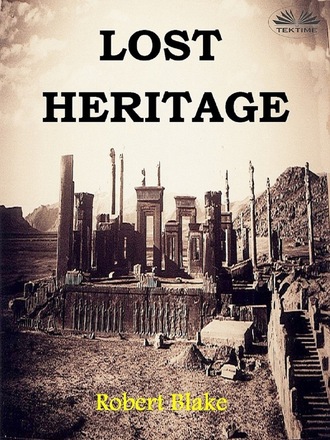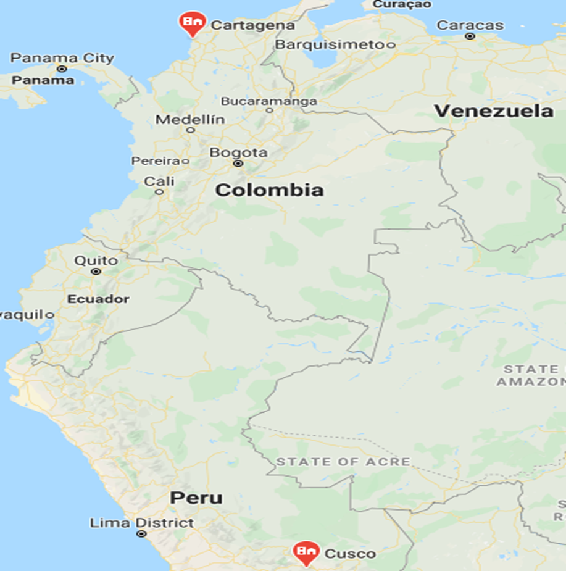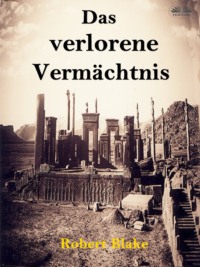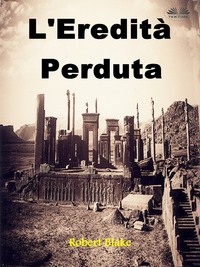
Полная версия
Lost Heritage
On lifting my head, I saw the man notice me and then he left by the other door at the next stop. Alas, I had no strength left to follow him any further.
The next morning before the sun had come up, I was at King’s Cross Station and had bought a train ticket to Newcastle. It was my last option and I wasn't going to waste it.
Although it was a long trip, it felt much shorter thanks to the fantastic views I was afforded of the verdant English countryside during early springtime along the way.
I arrived at Newcastle train station just after noon. Newcastle-upon-Tyne is a grey industrial city with row after row of terraced houses, and not somewhere one would choose for a holiday. Fortunately, I was not on vacation and would spend a day or two there at the most.
As soon as I got off the train, I headed for the nearby bus station. A multitude of buses seemed to be coming and going, and I felt a little bewildered by the unfamiliar place names. So, I approached a man in uniform who I presumed was in some sort of official capacity there and showed him the name of my destination. In his north-east accent, he told me where to go and what bus to catch.
As we weaved our way through the drab streets and eventually left the city behind, the landscapes were just like those portrayed in novels: misty moors with little vegetation, small hills eroded by strong winds and a coldness that could chill a man to the bone. All this was accompanied by an incessant rain which seemed even more intense than anywhere else I had ever visited in the country.
I spent the night at a guest house in the town closest to the Henson estate. The dinner was exquisite, and afterwards, the owner showed me how to get to the Henson place.
The Hensons lived on a large estate just a short distance from where I had spent the night. The house was a formidable double-storey mansion built in the 18th century from dark granite over which long thick vines of ivy stood out like veins, winding their way around its large windows. On the right-hand side of the house, a small lake surrounded by birches could be seen where several white swans swam majestically.
The butler bid me wait at the front door for a long time before then motioning me to follow him through to a garden at the back of the house. There, an elderly lady was tending to some splendid rose bushes.
It was Philip Henson’s sister Emma, an elderly spinster with silver hair and a wide smile who wore an elegant white dress.
‘Nice to meet you,’ she said as she took off one of her gardening gloves and shook my hand.
‘Likewise.’
'I’ve been told that you have come all the way from London and have been inquiring about my brother.’
‘That’s correct. I’m a news correspondent. We wish to put together a series of articles on all things to do with the expeditions of the Geographical Society.’
Emma Henson gestured to the butler and within a few minutes we were served tea and cake.
‘We know that your brother was one of the co-founders of the Geographical Society and that he later left for Spain.’
‘That’s where he founded a subsidiary of the London branch of the Geography Society. It was common in those days for many in this field to station themselves in other countries and establish new associations similar to the original.’
At the other end of the garden there was the sound of a gardener trimming a beautiful hedge.
‘Could you tell me what expeditions were carried out by the Spanish branch of the Society?’
She shook her head.
‘What about expeditions to South America and the Middle East? Do these ring any bells?’ I asked.
‘I am unaware of any such expeditions. This is the first I have heard of such.’
Insects began to flutter around our table, no doubt attracted by the smell of the cakes, but Emma Henson quickly shooed them away.
‘Would it be possible for me to speak to your sister-in-law? Maybe she has more information.’
‘Philip's wife passed away some time ago. She had been ill for most of her life, barely able to spend time with her husband.’
I put a piece of cake to my mouth while the aroma of jasmine tea wafted to my nostrils. I decided to take my time and enjoy our conversation as the information I was receiving was leading me nowhere.
It was at that moment that I saw Emma smiling.
‘Do you think you may have misread or misunderstood the information held at the Geographical Society?’
‘I don’t understand what you’re driving at.’
‘Are you sure you're looking for the right Henson?’ she asked me.
I pondered the question for a moment before asking:
‘Is there another Henson that I’m unaware of?’
‘Yes. Perhaps you are looking for James Henson.’
‘Who is James Henson?’
‘James Henson is Philip's son. From an early age he had a passion for history and geography. He lived for a time in Spain when he was a teenager and later returned to England to study archaeology at Oxford University, but that was such a long time ago. He had an indomitable adventurous spirit,’ she declared.
This time, a huge grin now appeared on my face. Now I understood. The information I had found was from the expeditions in the first decade of the 20th century. It hadn’t occurred to me before, but Phillip Henson would have been very old to have taken part in such expeditions, whereas his son would be of a more appropriate age.
‘The dates I found would concur with someone who would be of his son’s possible age. Could you tell me where I can find him?’
‘I haven't heard from the boy since he went off to university. We lost track of him some years ago. The last news we had was that he was wounded during the Great War.’
‘Could you describe him?’
He was a dark-haired boy with a dark complexion and blue eyes as intense as his father's. Tall and good-looking, with angular features,’ she paused for a moment, excited at recalling the memory of her nephew. ‘He was always an astute and intelligent boy.’
‘Would you happen to have a photograph of him?’
‘I’m sorry. I don’t have any,’ she replied.
‘Well, thank you very much. You have been a great help. And now, I must catch the first train back to London.’
On the return trip I couldn’t stop thinking about my investigation, which was finally beginning to take shape. Surely my boss would now agree to sanction further research into this matter.
I entered Mr. Dillan's office and told him the whole story. The course that events had taken seemed surprising to him and he told me to take all the time I needed to solve this mystery. With no time to lose I set out for Oxford University to find out more about James Henson.
Compared with the grey city of Newcastle, Oxford was vibrantly coloured. The countryside around it seemed to stretch for endless miles criss-crossed by a multitude of rivers and lakes. It was a pleasure to wander through its streets consisting of centuries-old buildings that were true architectural gems and breathe in that university atmosphere where students from all over the world came to study.
I arrived around lunchtime and took the opportunity to have a sandwich and a pint of beer in a busy pub in the centre of Oxford before going on to the university.
The particular university college to which I was heading consisted of many Gothic-style buildings with large windows that flooded their interiors with light. As I walked through the extensive gardens, I passed several groups of students chatting under the shade of trees. There was a game of rugby being played in a wide meadow in the distance and, at the bottom of the path I was walking along, several oarsmen crossed carrying a couple of boats on their shoulders.
I had already met the caretaker from previous assignments. He was a chubby middle-aged Irishman with exquisite manners who always greeted me warmly.
‘Good afternoon, Richard. How is everything?’ I asked him.
‘I can’t complain. Tell me, what brings you here this time?’
‘I'm looking for information on a student who studied here during the last decade of the last century.’
‘That shouldn’t be too difficult. Do you know his forename and surname?’
‘Yes, James Henson.’
‘Go to the secretary and fill out the usual form.’
A few minutes after entering the building, I had completed the required paperwork and had managed to get hold of James Henson's record. He had studied archaeology between 1890 and 1895, and was an accomplished student, specializing in ancient cuneiform writing. That explained his expeditions to the Middle East, although I still did not understand what reason he would have for making an expedition to South America.
I sought out Richard the caretaker once more and asked him if he knew of anyone who could help me with this matter.
‘The Middle Eastern Antiquities faculty is the largest in this college. Most students would like to discover the mysteries of ancient Egypt.’
I nodded my head.
‘The most suitable person to consult would be Professor McKingley,’ he continued. ‘He may even have been in the same class or year group at that time as a student here and may well have known him. But this week, he’s attending the Middle East Archaeology Conference in Berlin. If you wish to ask him anything, you’ll have to wait for him to come back I’m afraid.’
At that moment, students began to file out of their classes causing a great hubbub.
‘Who could furnish me with information about expeditions to South America?’ I asked, having to raise my voice above the din.
‘You may be in luck. There aren’t many people here who specialise in that particular area. Our greatest expert in that field is Professor Margaret Spencer. Her office is on the second floor of the west wing.’
I walked through the building and, after crossing its imposing atrium, climbed the stairs up to a second-floor office where I knocked on the door.
Professor Spencer was wearing a green suit that further enhanced her piercing eyes. Her blonde hair was tied back in a chic bun that embellished her face and highlighted her prominent cheekbones.
'James Henson? Yes, of course I knew him. We went on an expedition together to South America. We were looking for vestiges of pre-Columbian civilizations.’
‘When would that have been?’ I asked with a smile.
'Around the beginning of the century.’
‘I was researching that expedition at the Geographical Society and found little information on him. I only came across his name, his last name, on the back of a piece of paper in the file.’
‘Maybe you didn't do your research thoroughly enough,’ she replied brusquely.
I listened to her words somewhat perplexed; that answer was unexpected.
‘You’ll have to excuse me, but I have a class in a few moments,’ she said, rising from her chair and picking up a couple of books. ‘If you wish to know more, you may stop by my house this afternoon.’
‘I would like that very much, Professor.’
‘You’ll find Corton House on the southern outskirts of the city. How’s four o’clock for you?’
‘Fine. I’ll be there.’
‘It's the last house on the road out of Oxford. There are tulips at the entrance to the front garden,’ she added as we emerged out into the corridor.

Chapter 2
Oxford, 1923
That afternoon Professor Spencer received me at her home. While she was serving tea in elegant china cups accompanied by butter pastries and Belgian chocolates given to her by a student, I was admiring her magnificent drawing room furniture. She must have spent years looking for each piece so that they all fitted together perfectly, as if it were the mechanism of a Swiss watch.
The walls were filled with numerous paintings, most of which were of grand hunting scenes. In the centre, a beautiful white marble fireplace presided over the room, and in front of it was a magnificent leather sofa flanked by two patterned armchairs in pastel colours. To the left of the fireplace there was a huge globe of the earth next to a walnut shelf containing some of the great classics of Russian literature. At the other end of the room, under the main window, a large grand piano completed the decor.
‘Why don’t you take a seat, and I'll tell you everything I know,’ she said after sitting down in her armchair.
Конец ознакомительного фрагмента.
Текст предоставлен ООО «ЛитРес».
Прочитайте эту книгу целиком, купив полную легальную версию на ЛитРес.
Безопасно оплатить книгу можно банковской картой Visa, MasterCard, Maestro, со счета мобильного телефона, с платежного терминала, в салоне МТС или Связной, через PayPal, WebMoney, Яндекс.Деньги, QIWI Кошелек, бонусными картами или другим удобным Вам способом.





